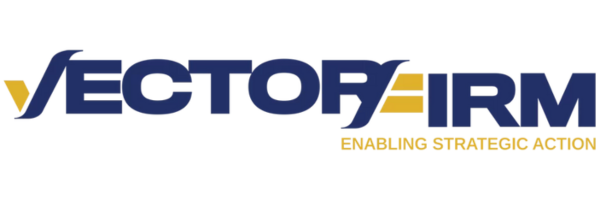The Content Shift No One Can Ignore
If you’re a system integrator, you’ve likely noticed that your marketing tactics aren’t driving the same results they used to. Maybe your blogs don’t generate traffic anymore. Maybe your LinkedIn posts get impressions but not conversations. Or maybe you’ve been relying on your technology partners’ marketing materials only to realize your competitors are using the same assets.
Here’s the truth: the content game has changed, and AI search is rewriting the rules. In recent blog articles we discussed topics like the AI-Powered buyer journey and the impact of trust signals on helping you win more opportunities, but in this article, we'll share how AI-driven search is disrupting SEO, and what integrators should do about it moving forward.
The Problem With “Old School” Content
For the past decade, marketing was built around Google’s traditional search engine. To rank, you optimized for keywords, backlinks, and word count. Many system integrators outsourced SEO projects, sprinkled in a few blog posts, and called it a day.
That strategy worked, until now.
Today and moving forward, customers aren’t just searching on Google anymore. They’re asking AI tools like ChatGPT, Perplexity, and Google’s Search Generative Experience (SGE) to give them answers instantly. Instead of browsing ten websites, they’re reading AI-generated summaries that combine the best information available.
If your content isn’t optimized for these AI engines, you’re invisible to the very customers who need your expertise.
How Buyer Behavior Has Changed
Here’s what’s happening right now:
-
Prospects don’t type “commercial access control integrator in Dallas.” They ask, “What’s the best way to modernize building security in Dallas?”
-
AI tools pull answers from trusted sources. If your competitor has built more authoritative, structured content, their name shows up.
-
Decision-makers expect instant, credible answers. If they can’t find you in one search, they move on.
In other words: your website is no longer the destination. It’s the training ground for AI.
What Needs to Change Moving Forward
To stay relevant, system integrators must rethink how they approach content marketing. This isn’t about posting random blogs or recycling vendor case studies. It’s about creating AI-visible, authority-driven content that directly answers buyer questions.
Here’s what that looks like:
-
Topic Clusters & Semantic Authority
Instead of writing a single blog about video surveillance, build an entire content cluster:-
A pillar page: “The Complete Guide to Cloud-Based Video Surveillance for Commercial Properties”
-
Supporting blogs: “How Cloud Video Lowers Total Cost of Ownership,” “5 Questions Facility Managers Ask About Cloud Migration,” “The Future of Video Analytics in Security”
-
FAQs, short videos, and case studies linked back to the main pillar.
This signals to AI: “We are the authority on this subject.”
-
-
Structured Data & Schema Markup
AI engines read websites differently than humans. Schema markup; things like FAQs, how-to instructions, and video transcripts, make your content machine-readable, ensuring it gets cited. -
Multi-Modal Content
Don’t just write. Record short videos. Upload transcripts. Add infographics. AI engines pull from multiple formats, and integrators who diversify will win. -
Q&A-Style Formatting
Prospects aren’t looking for essays. They’re asking questions. Format your blogs and videos to mirror that behavior: “What’s the best access control system for multi-site businesses?” → followed by a clear, structured answer. -
Consistency & Depth
Posting once a quarter won’t cut it. Integrators who publish steady, in-depth content will build the authority AI engines reward.
The Opportunity for System Integrators
Most integrators haven’t figured this out yet. They’re still relying on a vendor’s marketing PDF, hoping someone finds it, or posting generic “Here’s a new camera launch” updates on LinkedIn.
That’s not strategy; that’s noise.
The integrators who adapt now, those who build AI-visible content engines will dominate their markets. When facility managers, IT directors, or school administrators ask AI, “What’s the best way to upgrade my video surveillance system?”, your company should be the one showing up.
How Vector Firm Can Help
The challenge is that system integrators weren’t built to be content factories. You have technical engineers, project managers, and salespeople not content strategists. Creating this type of structured, AI-ready content takes time, consistency, and expertise.
That’s where Vector Firm comes in.
We specialize in helping system integrators stand out in a crowded market with content strategies built for today’s search environment. Our team understands both the technical complexity of security and integration solutions and the modern marketing strategies needed to get those solutions found.
When you work with us, we help you:
-
Build semantic topic clusters around your core services (video, access, fire, IT, AV).
-
Implement schema markup and AI-preferred formatting to make your content visible.
-
Produce a mix of blogs, videos, infographics, and client stories that position you as the authority.
-
Create consistent monthly content that keeps you in front of both prospects and AI engines.
Simply put: we’ll make sure your expertise gets found, understood, and trusted by both your buyers and the AI tools they use.
AI isn’t a fad. It’s already reshaping how your customers find answers and the integrators who fail to adapt will fade into the background.
The good news? You don’t have to reinvent the wheel on your own. With Vector Firm, you can build a content engine that gets you discovered, drives leads, and positions your company as the trusted expert in your market.
Ready to make sure your content strategy works in the age of AI? Let’s talk. Vector Firm can help you create a 2025 content engine that actually gets results.




